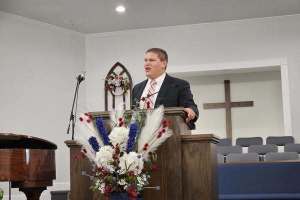WHO: No Hope for HIV/AIDS without Faith Groups
A major portion of HIV/AIDS care and treatment comes from faith-based organizations (FBOs), according to a study released by the World Health Organization (WHO) at the National Cathedral in Washington, D.C., on Thursday.
The study found that Christian hospitals and health centers in Lesotho, where HIV prevalence rates are 23.2 percent, provide about 40 percent of HIV care and treatment services in the country. In Zambia, faith-based organizations run nearly one-third of the HIV/AIDS treatment facilities.
“Faith-based organizations are a vital part of civil society,” said Dr. Kevin De Cock, director of WHO’s department of HIV/AIDS, in a statement. “Since they provide a substantial portion of care in developing countries, often reaching vulnerable populations living under adverse conditions, FBOs must be recognized as essential contributors towards universal access efforts.”
The study, the first of its kind, found the need for greater collaboration between public health agencies and FBOs. It estimates that 30 to 70 percent of the health infrastructure in Africa is currently owned by faith-based organizations, though there is often little cooperation between FBOs and public health programs.
“Purpose Driven” pastor Rick Warren would agree with the need for greater collaboration between the public sector and FBOs. Warren, who began the first church conference on HIV/AIDS in 2005, has often used the model of a three-legged stool to illustrate his ideal model to overcome the HIV pandemic. In his model, he calls for the government, NGOs (non-governmental organizations), and the church to work together, each of which represent a leg of a stool. If even one leg was missing, the stool could not stand.
Church denominations, such as the Evangelical Lutheran Church in America (ELCA) and the Episcopal Church, have also taken up the issue of HIV/AIDS. In its recently released study guide on global poverty and Millennium Development Goals (MDGs) entitled “God’s Mission in the World,” the churches informed congregants on HIV/AIDS and asked thought-provoking questions on how Christians can help respond to the crisis, noting that the church should follow the example of Jesus the healer and connect their faith with action.
“Donors and health-care funders need to take the role of FBOs into account,”
said Ted Karpf, partnerships officer in WHO’s department of HIV/AIDS. “Without the FBOs, the hope of universal access to prevention, treatment and care is lost.”





























